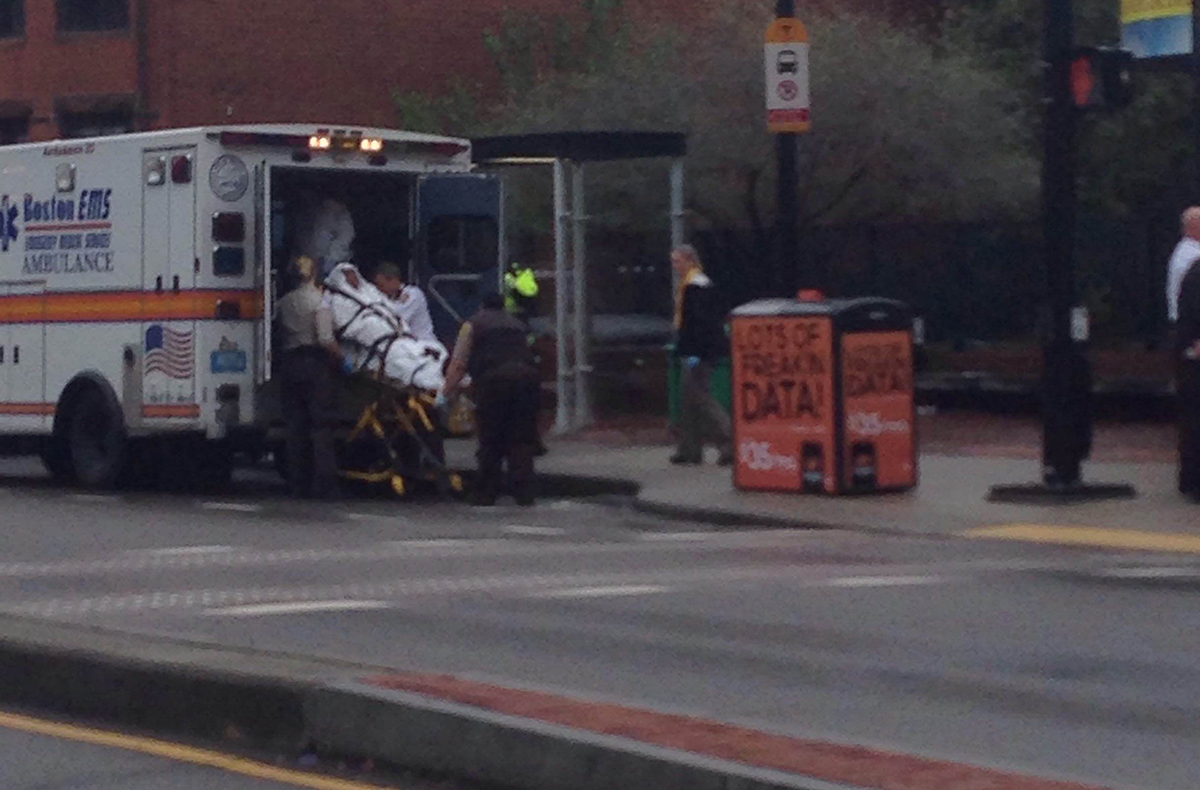Ebola Scare Shuts Down MBTA Station

Photo by Steve Annear
Calls to first responders about possible Ebola cases are “the new anthrax,” according to MBTA Transit Police.
On Thursday, train services between the Ruggles and Back Bay stations were suspended after a woman was sick on the platform at Massachusetts Avenue, and traces of blood were visible in her vomit.
Transit Police Deputy Chief Jim Witzgall said that after receiving a 911 call, where a person claimed a “Liberian woman” might have Ebola, emergency responders rushed to the scene and closed down the T station, roping off a section of the street leading to the stop along Mass. Ave.
Witzgall said they responded to the scene as a precautionary measure given the fact that Ebola concerns have dominated the news, and recent reports of people possibly being infected with the deadly virus have led to “panic.”
“Someone made the assumption she was from Liberia, and she had Ebola. She never stated any of that,” he said, adding that the woman is actually of Haitian descent. “We are all doing our best to maintain security and maintain everyone’s awareness about [Ebola] at the same time, and keep everyone sane and calm. We don’t want to overreact, but at the same time we want to maintain the right safety and protocols.”
The Mass. Ave. station was reopened shortly after the unidentified woman was transported by medical responders from the T platform while wearing a white sheath over her body. An MBTA spokesperson said the woman was taken to Boston Medical Center for treatment. Emergency personnel were not wearing Hazmat suits when they arrived at the station.
Thursday’s scare came at the same time that elected officials held a hearing at the State House to talk about Ebola response statewide, and what emergency workers are doing to make sure there’s no chance for the infectious disease to spread to residents in the event that someone falls ill.
Already, Massachusetts has had several Ebola scares. On October 13, officials boarded a United Arab Emirates flight grounded at Logan Airport after five people on the plane reported “flu-like symptoms.” None had traveled to West Africa recently, and the Boston Public Health Commission declared that the passengers did not meet “criteria for infections of public health concern” such as Ebola.
A few days prior, a patient with “Ebola-like symptoms” visited Harvard Vanguard Medical Associates in Braintree, and was transported to a Boston hospital for observation. Officials later determined it was a false alarm, however.
Witzgall said he expects that the T and other agencies will continue to be inundated with these types of calls as the Ebola crisis in West Africa continues, but they are ready to respond accordingly.
“It’s almost like a little hysteria…this will happen more,” said Witzgall, calling the unsubstantiated reports the new anthrax. “You know what, Boston Fire and Boston EMS—and all the hospitals—everyone is preparing for that anyways.”


